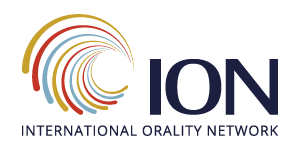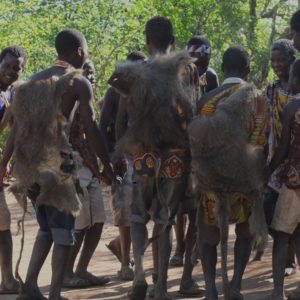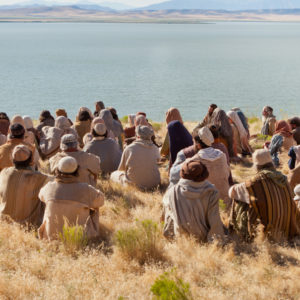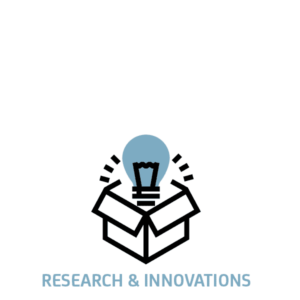The following is a chapter from the book ‘Oralities and Literacies: Implications for Communication and Education‘. A chapter will be posted here each week.
Chapter 6 – Oralities and Implications to Education
by Emmanuel Chemengich
The Case of ACTEA and its Accreditation of Theological Programs in Africa.
In this chapter, I offer introductory definitions of ‘orality’ and ‘education’ and overviews of ACTEA (the accrediting agency for theological education in Africa) and Africa’s orality context. I then identify implications of oralities learning approaches for both African theological education and ACTEA accreditation process and practices before stating the conclusion.
Definition of Orality
Orality is thought and verbal expression in societies where the technologies of literacy, especially writing and print, are not familiar to most of the population. The study of orality is closely allied to the study of oral tradition. One of the key pioneer scholars in orality, Walter J. Ong (2002), distinguishes between two forms of orality: ‘primary orality’ and ‘secondary orality.” Primary orality refers to thought and its verbal expression within cultures “totally untouched by any knowledge of writing or print, while secondary orality or residual orality refers to thought and its verbal expression in cultures that have been exposed to writing and print, but have not fully internalized the use of these literate concepts in their daily lives. The more the culture internalizes the ‘technologies of literacy’, the more its oral residue diminishes.
This chapter will mainly focus on the ‘residual orality’ in its references as a predominant form of orality in modern-day African context. However, we must note the historical reality that the print and oral aspects of a culture can co-exist together for decades and centuries, as the print form may at times enhance some of the orality expressions. While some experts describe “orality” as a single phenomenon that has consistent features across cultures, others insist that oral practices are culture-specific and hence diverse enough that they should be thought of as “oralities.”
In order to best understand the distinctive oral culture practices over against those of literacy and their implications for education, I will highlight here some key expressions of oralities. While Ong (2002, p. 34-54) gives a list of ten expressions of oralities, which he terms “pschodynamics of orality,” I have selected the following three from his list which lend themselves to educational aspects of orality and which I will reference in this paper to show the implications of orality for theological education: 1. Information Storage: oral cultures only store information that is immediately relevant by way of memorization, and is passed on through apprenticeship, observation and practice, and not through print media as in the literary cultures. 2. Practical Thinking: oral peoples prefer to deal with practical and concrete, not abstract thinking patterns. They use concepts to minimize abstractions and focus to the greatest extent possible on objects and situations directly known by the speaker. 3. Communal and Participatory Process: oral cultures embrace an empathetic and participatory communal process of decision-making and establishing the truth that is closely akin to a ‘jury system’, or three- or seven-bench judge of the Court of Appeals or Supreme Courts in modern judicial system.
Three main justifications can then be made for considering orality approach to theological education: First, the obvious conclusion that the majority of the world population prefers to learn by oral means over print or any other literate forms of learning (A. Willis & M. Snowden, p. 27-28). This is more profound in Africa where a good number of indigenous tribal languages have not even been put to print, or taught in formal schooling.
Second, the fact that there are learners with physical disabilities, such as, the blind and the deaf, who can only learn by way of oral approaches makes a strong case for oralities approach to learning. Third, the growing global decline of the reading culture corresponds with the growing significance of orality education. We should note that even in the West, less than one half of the population have a strong reading culture, making it a distinct minority even in the world’s highly educated societies. The case is more acute in African context that is far less literate. Wendy Griswold (2008, p. 167) gives us a clear statistical picture of this scenario when she states, “In the West and Japan, the reading class will stabilize at something between one-quarter and one-third of the population. It will vary – Norway’s will remain larger than Italy’s – but overall that will be the picture: a minority, but a good-sized minority, of adults will read in their spare time. In developing countries the reading class will be a smaller minority, perhaps around 15 percent. The reading class will remain strong, but the day of the reading culture is over”.
Definition of Education
Education is the act or process of imparting or acquiring knowledge, developing the powers of reasoning and judgment, and generally of preparing oneself or others intellectually for mature and productive life. In addition, education is the social institution through which a society teaches its members the skills, knowledge, norms, and values they need to learn to become good and productive members of their society. This definition highlights education as an important part of socialization. In the context of this chapter, we also note that education is both formal and informal. Formal education is often referred to as schooling and occurs under trained educators, while informal education occurs almost anywhere, but primarily in homes with parents as instructors and in other societal events and activities where elders or adults function as instructors.
Overview of ACTEA and the African Orality Context.
ACTEA (Association for Christian Theological Education in Africa)[1] is an association or network of theological institutions in Sub-Saharan Africa with primary responsibilities of offering accreditation services, capacity-building workshops, and enhancing continental and inter-continental cooperation among member institutions. In offering its accreditation services, ACTEA has established accreditation standards to guide institutions in self-directed, self-evaluation process and peer-review accountability mechanisms toward achieving member institution’s internal quality and relevance. In doing this, institutions get external recognition of their study programs as they fulfill internationally accepted academic quality standards.
Overview of African Orality Context
Over the centuries, the predominant mode of teaching and learning for the majority of African people has been through Orality. Thus, Africa has poetry, story-telling, art (music and dance), and apprenticeship or mentoring as key avenues for educating the next generations of adults. But the dawn of modern Western-oriented education over the last two centuries has gradually replaced most of the oral, informal African educational approach. This is true for both secular and theological training programs.
Despite the coming of Western literacy, one observes that leaders in today’s African Church ministry contexts find themselves engaging many oral approaches as the most effective and dominant educational orientation. Consequently, graduates of theological institutions have to wrestle with the act of balancing between the formal, literacy approaches they learned in theological institution and the dominant orality-based ministry approaches of the African contexts they function in.
ACTEA functions within this ministry context of residual orality and finds herself at the crossroads of facilitating among member institutions the needed balance between literacy-based approaches to theological training, on the one hand, and the orality-based approaches on the other, in order to ensure member institutions remain relevant and true to their orality contexts.
Implications of Oralities to Theological Education in African Context
In this section, I attempt to answer the question, ‘How should our understanding of the orality/oralities question affect our approaches to education generally and more specifically to Christian training for ministry and theological education?’ I take three (from Walter Ong’s list of ten) key orality expressions highlighted above as our reference points in identifying implications of orality for theological training within the African context:
Implications for Theological Curriculum
In designing theological curriculum, one must seriously consider the traditional three divisions of theological training, that is, biblical, theological, and practical. In light of oralities approach of practical thinking over against abstract patterns, consideration should be made to include practical content even to the theoretical divisions of theological and biblical divisions, linking its contents to practical aspects in the learner’s context. For instance, ‘biblical division’ which includes learning biblical languages, like Greek and Hebrew, can adopt oral approaches of learning new language by incorporating audios, visual-aids, memorizing, and practicing the new language to make teaching effective.
Implications for Teaching Methodologies
In light of a supposition of oral cultures’ preference to transmit and manage knowledge information through apprenticeship, observation and practice, it is vital for African theological institutions to orient their teaching methods to oral lectures that utilize visual and audio lectures and only secondarily through printed lecture notes. This does not mean to simply put the outline in a PowerPoint presentation to make it “visual.” It may mean taking a narrative method of presenting the same emphasis as the primary means of multimodal communication in connecting students with the instruction. Further, in light of the ‘observation learning principle’ of oral cultures, instructors must prioritize field practical experiences for their students as it utilizes their preferred oral medium for effective learning. And finally, the oral culture’s learning principle of community participatory process can be incorporated into modern theological classroom through use of discussion groups and presentations of findings in class settings for firm identification with the truths revealed and being transmitted.
Implications for Educational Assessments
Orality has direct implications on both the nature and quality of assessment mechanisms in African theological institutions. Consequently, in light of oral preferences of learners, instructors need to offer both written and oral exams and give room for oral presentations as means to evaluate a learner’s performance. Further, learners in oral cultures should also be given opportunity to evaluate the quality of teaching primarily based on the oral presentations or the traditional lecture, and not just the course design and contents.
Implications of Orality to ACTEA Accreditation Processes and Practices
Before looking at implications, we note the place and status of orality in ACTEA Standards. While the Standards cover few aspects of oralities, especially with regard to curriculum development, they only hint to orality expressions in relation to contextualizing curriculum without explicitly referring to orality terminology. Here, I briefly highlight implications and areas to be considered in future reviews of ACTEA Standards in relation to orality educational approaches.
First, theological curriculum in African context should prioritize and mainstream orality approaches, especially in its ‘practical division’ given that courses in this section lend themselves to practical dimensions emphasized in orality approach. Orality context requires that curriculum provides forums for learner’s experiential orientation to the ministry context in which they are being prepared to serve and their performance be evaluated based on their orality backgrounds that shape their unique mental conceptualizations.
The second implication of African orality approach is relevant teaching methodologies. We note here that ACTEA Standards specifically points out importance of institutions relating the content of their teaching to the church and societal context in which the student is serving, or will serve in the near future. In light of Africa’s orality context stated above, it is vital for African theological institutions to incorporate oralities learning approaches in order to facilitate and guarantee relevant learning and preparation of ministers for the dominant oral context of their ministries. This could include orality learning approaches such as, discussion groups, internship or apprenticeship programs.
And thirdly, within ACTEA’s Standards on institutional facilities, emphasis should be placed on member institutions to equip their libraries and classrooms with orality teaching tools and materials to facilitate instructors and learners. This would include, acquiring oral Bibles, audio books, visual aids to learning (such as projectors, recording devices, sound equipment), art work (including music and dance), and all other orality learning materials specific to the cultural context to which the institution is located. This will give the institution a foundational basis to engage and incorporate orality-based learning approaches.
Conclusions
Oralities approaches to learning has direct and indirect implications for theological education that include, curriculum design, teaching methodologies, and educational assessments. ACTEA will do well to note these implications and explicitly incorporate them into future revisions of the accreditation Standards in order to orient member theological institutions to their unique African ministerial orality context.
Notes
[1] Formerly ACTEA stood for, “Accrediting Council for Theological Education in Africa”. Name was changed in 2013 to reflect and do justice to the other non-accreditation functions of ACTEA. For more information on ACTEA visit its official website, www.acteaweb.org.








